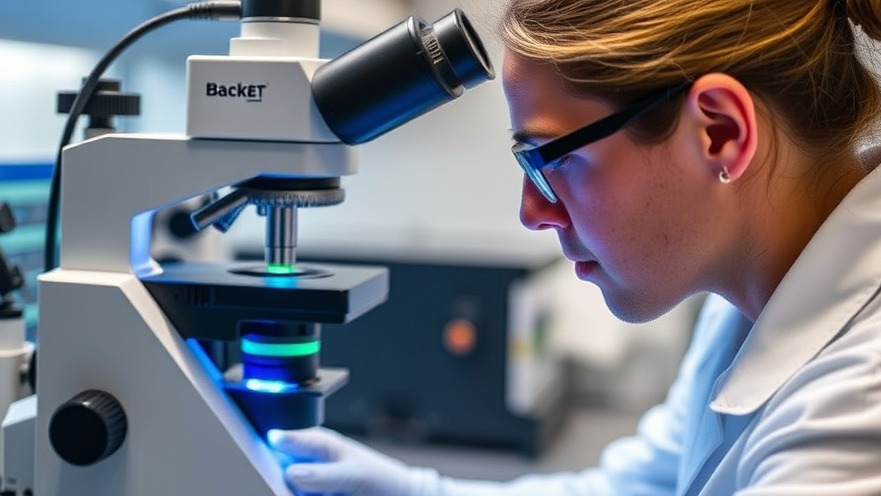
Unlocking the Secrets of Hypoimmune Stem Cells
The world of regenerative medicine is rapidly evolving, with new innovations potentially altering the landscape of organ transplants. Dr. Sonja Schrepfer, a leading scientist in this field, has pioneered the development of hypoimmune stem cells—an advanced solution designed to enhance transplant acceptance and prevent immune rejection.
Why is Immune Rejection a Challenge?
One of the biggest hurdles in transplantation is the body's natural tendency to reject foreign tissue. This immune response necessitates lifelong immunosuppression in transplant recipients, leading to various complications. Schrepfer highlighted her motivation for researching stem cells, recalling the loss of patients due to these complications.
“Patients with heart and lung transplants face severe complications from immunosuppression,” she noted. By focusing on stem cells, she aims to develop a strategy to combat rejection, reducing dependency on immunosuppressive drugs.
The Ingenious Mechanism of Hypoimmune Cells
Schrepfer's groundbreaking approach leverages genetic engineering to create stem cells that evade the immune system—akin to how a developing fetus remains undetected by its mother’s immune system. This natural process ensures the survival of the fetus, despite half of its genetic makeup being perceived as foreign.
“By employing the hypoimmune mechanisms observed in pregnancy, we can engineer stem cells that proliferate and remain invisible to the immune system,” Schrepfer explained. This genetic modification presents a massive stride forward, as the new cellular generations also retain hypoimmune properties, ensuring a consistent and potent approach to transplantation.
Potential Impact on Patient Care
This innovation holds the promise of revolutionizing patient care in transplants. The hypoimmune stem cells could potentially eliminate the need for continuous drug regimens that suppress the immune system, which often lead to various health problems and increased hospital visits. As a result, patients may experience improved quality of life and outcomes during and post-transplant.
Counterarguments and Perspectives
As promising as hypoimmune stem cells appear, experts point to concerns regarding long-term effects and the ethical implications of manipulating cells at such a fundamental level. Questions about the safety and efficacy over time could mar the enthusiastic potential of these findings.
Additionally, while Schrepfer’s methods are pioneering, replicability will also play a crucial role in garnering trust from the medical community. If other researchers can validate and replicate her findings, the path to clinical application will be greatly paved.
Future Predictions: A Lens on Regenerative Medicine
The conversation around hypoimmune stem cells is just beginning, with numerous experts predicting a significant shift in regenerative medicine practices over the next decade. As technologies improve and research delves deeper into genetic engineering, the possibilities expand exponentially. Potential developments might include more complex tissue engineering and further advancements in cell therapy that address immune responses across various conditions.
Practical Insights and Considerations for Practitioners
For health practitioners, keeping abreast of innovations like hypoimmune stem cells is essential. Understanding how these advances could impact their practices allows for better patient education and care. Integrating information about cutting-edge therapies into discussions with patients reflects a commitment to comprehensive, patient-centered care. Moreover, being informed might open up new avenues for multi-disciplinary collaboration within healthcare settings.
Join the Conversation on Regenerative Medicine
As the field progresses, engaging in discussions about hypoimmune stem cells can stimulate dialogue among practitioners, potentially leading to collaboration in integrating these changes into clinical practice. Stay informed, explore further research, and consider how such innovations can enhance patient outcomes while providing cutting-edge care.
With the emerging landscape of biotechnology and surgery intersecting, practitioners can enhance patient trust and satisfaction by being knowledgeable about contemporary advancements. It's time to embrace the future of medicine and understand the profound implications that hypoimmune stem cells may have for us all.
 Add Row
Add Row  Add
Add 




Write A Comment